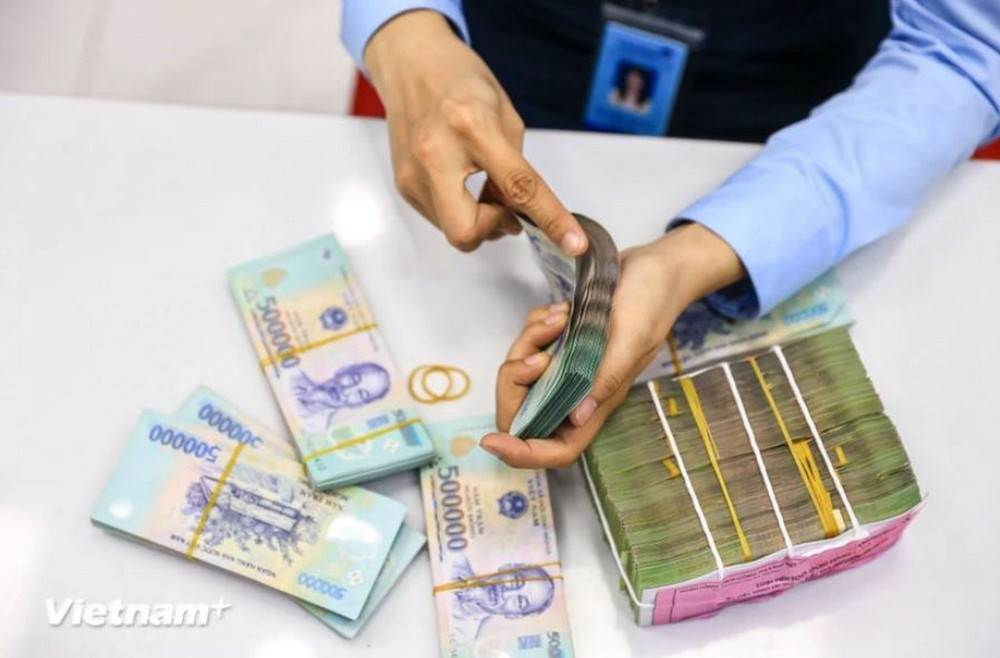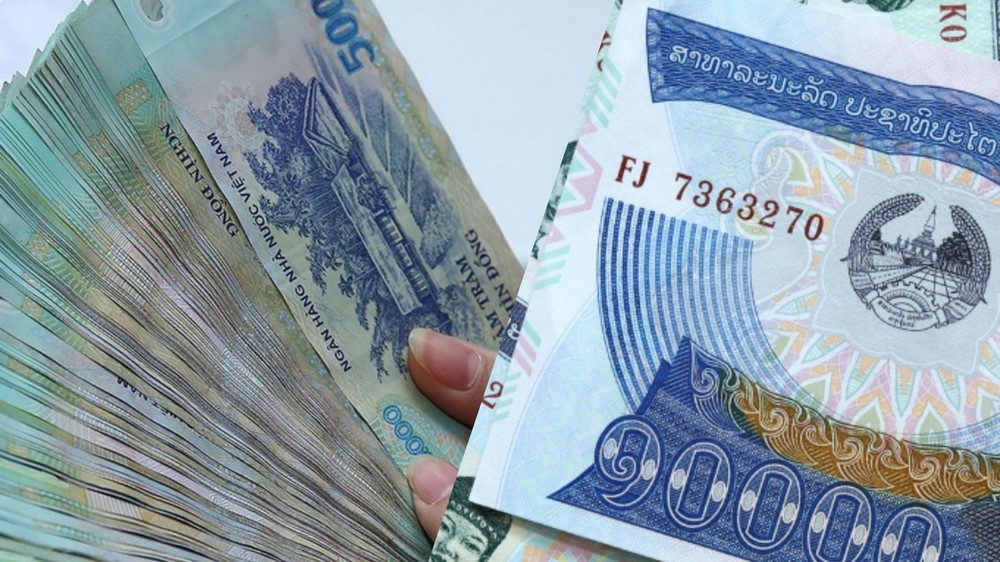Notable economic policies include amending regulations on the purchase, sale and handling of bad debts by asset management companies; each payment agency point is allowed to transact no more than VND200 million/day...

Amending regulations on the purchase, sale and handling of bad debts by asset management companies; each payment agency point is allowed to transact no more than 200 million VND/day; new regulations on the management of passenger transport routes by car... are prominent policies related to the economic sector that will officially take effect from July 2024.
The State Bank of Vietnam has issued Circular 03/2024/TT-NHNN dated May 16, 2024 amending and supplementing a number of articles of Circular 19/2013/TT-NHNN dated September 6, 2023 regulating the purchase, sale and handling of bad debts by asset management companies of Vietnamese credit institutions.
Circular 03/2024/TT-NHNN amends and supplements Article 23 on conditions for bad debts to be purchased by the Asset Management Company at market value:
The conditions specified in Clause 1, Article 16 of this Circular.
Assessed by the asset management company as likely to recover the full amount of the debt purchase.
The collateral of the bad debt is likely to be foreclosed or the borrower has the prospect of recovering its ability to repay the debt.
In case of converting bad debt purchased with special bonds into bad debt purchased at market value, the special bonds corresponding to that bad debt must also meet the conditions of not being due for payment and not being frozen at the State Bank.
In addition, the circular amends and supplements Article 26 on the purchase of bad debts at market value. Accordingly, based on the plan to purchase debts at market value approved by the State Bank, financial capacity, economic efficiency and market conditions, the asset management company decides and is responsible for purchasing bad debts at market value.
Asset management companies are only allowed to purchase bad debts of credit institutions and foreign bank branches, including bad debts currently recorded in the balance sheet according to the regulations of the Governor of the State Bank on asset classification, bad debts that have used risk provisions for settlement but have not been recovered and are being monitored off the balance sheet at market value after performing the following tasks:
Evaluate bad debt that meets the above conditions.
Determine the market value of the bad debt, including the collateral of that bad debt. The asset management company must appraise or hire a valuation enterprise to determine the value of the bad debt and collateral.
Evaluate the economic efficiency, risks and recoverability of bad debt purchases.
Analyze and evaluate the current situation and prospects of bad debt, borrowers, guarantors, parties with debt repayment obligations and the terms of debt purchase agreements with credit institutions and foreign bank branches selling debt.
Plan feasible measures to handle debt and collateral of bad debt.
The purchase and sale of bad debt at market value must be made in a written contract in accordance with the provisions of this Circular and other relevant regulations. In case of converting bad debt purchased with special bonds into bad debt purchased at market value, the debt purchase and sale contract with special bonds shall terminate from the time the debt purchase and sale contract at market value takes effect. The asset management company shall negotiate with the credit institution or foreign bank branch to divide the remaining value of the amount recovered from the bad debt after deducting the purchase price and handling costs.
Credit institutions and foreign bank branches shall transfer all original files and documents related to bad debts to the asset management company. In case of converting bad debts purchased with special bonds into bad debts purchased at market value, the asset management company shall transfer all original files and documents related to the amount of debt recovery, capital contributions, and equity capital of the borrowing customer to the Vietnamese credit institution.
This Circular takes effect from July 1, 2024.

The State Bank of Vietnam has just issued Circular 07/2024/TT-NHNN dated June 21, 2024 regulating payment agent activities. It stipulates that each payment agent point is allowed to transact no more than VND 200 million/day and a maximum of VND 5 billion/month.
According to the circular, the principal is assigned to the agent to perform one or more of the following operations:
Receive payment account opening documents, check and verify customer identification information to send to the agent and guide customers on how to use the payment account.
Receive bank card issuance documents, check and verify customer identification information to send to the agent and guide customers on how to use the bank card.
Receive customer payment service requests, create, sign, control, process customer transaction documents, transfer customer transaction information to the agent, receive cash from customers or pay cash to customers to carry out transactions:
Deposit/withdraw cash into/from the customer's payment account opened at the principal;
Deposit/withdraw cash to/from customer's debit card, prepaid card issued by the agent;
Deposit cash to pay off the customer's credit card balance issued by the principal;
Provide payment services such as payment orders, payment authorizations, collections, collection authorizations, money transfers, collection on behalf, and payment on behalf.
Within 1 working day from the time of receiving the customer's request for payment services, the agent shall process the customer's transaction documents and transfer the customer's transaction information to the principal, except in the case of an information system failure and/or other force majeure conditions that prevent the customer's transaction from being carried out.
The principal must have measures to manage the balance and transaction limits of the agent, which is another organization, including: Transaction limit (including cash deposit and withdrawal transactions) for individual customers, maximum 20 million VND/customer/day.
The agent is only allowed to make transactions for customers within the balance of the payment account to perform the assigned operations of the agent opened at the principal according to regulations and each payment agent point is allowed to transact no more than 200 million VND/day and a maximum of 5 billion VND/month.
The transaction limit of the agent is a commercial bank, cooperative bank, foreign bank branch, people's credit fund, microfinance institution according to the agreement between the principal and the agent.
The Circular takes effect from July 1, 2024.

The Ministry of Finance issued Circular No. 29/2024/TT-BTC dated May 16, 2024 regulating the work of synthesizing, analyzing, forecasting market prices and ensuring funding for the work of synthesizing, analyzing, and forecasting market prices.
According to the circular, the Ministry of Finance shall preside over and coordinate with ministries and localities to synthesize, analyze and forecast market prices and develop a comprehensive market price report to submit to the Government and the Prime Minister upon request; a comprehensive report to serve the meeting of the Price Management Steering Committee to submit to the Head of the Price Management Steering Committee; a comprehensive market price report of localities nationwide shall be periodically sent to ministries, financial departments, relevant units under the Ministry of Finance, and other relevant agencies to provide information to serve the work of price management, operation, and inflation control of competent authorities at the central and local levels.
Ministries shall preside over and coordinate with relevant agencies and localities to synthesize, analyze and forecast market prices and develop specialized market price reports in their management fields to submit directly to the Government and the Prime Minister upon request; periodically and suddenly send reports to the Ministry of Finance according to the provisions of this Circular for synthesis and submission to the Government and the Prime Minister and to serve the meeting of the Price Management Steering Committee;
Provincial People's Committees shall synthesize, analyze and forecast market prices and prepare market price reports in their management areas and submit them directly to the Government and the Prime Minister upon request; send reports to the Ministry of Finance as prescribed in this Circular for synthesis and submission to the Government and the Prime Minister and serve meetings of the Price Management Steering Committee upon request.
The Department of Finance of provinces and centrally run cities shall synthesize, analyze and forecast market prices and prepare market price reports to send to the Ministry of Finance according to the reporting period prescribed in this Circular; submit market price reports to the Provincial People's Committee upon request.
The Circular clearly states that the budget to ensure the implementation of the work of synthesizing, analyzing, and forecasting market prices of agencies, organizations, and individuals according to regulations is arranged in the annual budget estimate according to the current budget decentralization.
Expenditures include lump sum expenses for staff assigned to directly collect market prices; expenses for working groups to survey, investigate, and collect market price information; expenses for stationery, drinking water, compilation and printing of documents for meetings serving the preparation of market price reports.
The expenditure levels are implemented according to the regulations in current legal documents and some expenditure levels are applied as follows:
Officers assigned to directly collect market prices are entitled to monthly fixed business trip allowances according to the provisions of Article 8 of Circular No. 40/2017/TT-BTC regulating business trip allowances and conference expense regimes;
Business expenses for working groups conducting surveys, investigations, and collecting market price information are implemented according to the provisions of Circular No. 40/2017/TT-BTC regulating business expenses and conference expenses.
The expenses for stationery, drinking water, compilation and printing of documents for meetings are paid according to actual invoices, legal spending documents and according to the provisions of the law on the state budget.
This Circular takes effect from July 1, 2024.

The Ministry of Transport issued Circular 18/2024/TT-BGTVT dated May 31, 2024 amending and supplementing a number of articles of Circular No. 12/2020/TT-BGTVT dated May 29, 2020 of the Minister of Transport regulating the organization and management of automobile transport activities and road transport support services.
The most notable point in Circular 18/2024/TT-BGTVT is the regulation on route management.
According to the provisions of Article 22 of Circular No. 12/2020/TT-BGTVT (amended and supplemented by Circular No. 05/2023/TT-BGTVT): Periodically before March 31 of each year, the Department of Transport shall develop, adjust and supplement fixed intra-provincial passenger transport routes; agree with the Department of Transport at the other end of the route to develop, adjust and supplement fixed inter-provincial passenger transport routes and report in writing to the Vietnam Road Administration for synthesis and submission to the Ministry of Transport for promulgation.
Periodically, before April 30 every year, the Vietnam Road Administration shall preside over and coordinate with the Departments of Transport of provinces and centrally run cities to synthesize, review, adjust and advise the Ministry of Transport to announce the list of fixed inter-provincial passenger transport routes; the Departments of Transport of provinces and centrally run cities shall advise and submit to the Provincial People's Committees to announce the list of fixed intra-provincial passenger transport routes.
The above content is amended by the Ministry of Transport in Circular 18/2024/TT-BGTVT as follows: The Department of Transport uses the software of the Ministry of Transport to: build, adjust, and supplement fixed intra-provincial passenger transport routes; agree with the Department of Transport of the other end of the route to build, adjust, and supplement fixed inter-provincial passenger transport routes and report to the Vietnam Road Administration for synthesis and publication.
Periodically, before April 30 every year, the Department of Transport of provinces and centrally-run cities shall announce the list of fixed intra-provincial passenger transport routes; the Vietnam Road Administration shall announce the list of fixed inter-provincial passenger transport routes.
Circular 18/2024/TT-BGTVT also stipulates that the Department of Transport (for intra-provincial routes) and the Department of Transport at both ends of the route (for inter-provincial routes) shall publicly announce on the department's electronic information page detailed information of each route including: departure bus station, destination bus station, itinerary; total number of trips and departure time of each trip that has a participating unit and minimum interval between adjacent trips; capacity of bus stations at both ends of the route.
Circular 18/2024/TT-BGTVT takes effect from July 15, 2024.

The State Bank of Vietnam issued Circular 04/2024/TT-NHNN dated May 31, 2024 guiding bilateral payment and money transfer activities between Vietnam and Laos.
This Circular stipulates the contents related to foreign exchange management for payment and money transfer activities in the purchase and sale of goods and provision of services between Vietnam and Laos; other foreign exchange activities serving bilateral payment and money transfer activities between Vietnam and Laos.
The use of foreign currency accounts (excluding Lao Kip - LAK accounts), Vietnamese Dong (VND) accounts of non-residents who are Lao organizations and individuals and Lao residents who are individuals opened at commercial banks, foreign bank branches licensed to conduct business and provide foreign exchange services in Vietnam (licensed banks) is carried out in accordance with the provisions of law on the use of foreign currency accounts, Vietnamese Dong accounts of residents and non-residents at licensed banks.
Carrying VND cash, LAK cash and other foreign currencies in cash by individuals when exiting or entering the country shall comply with the provisions of law on carrying foreign currencies in cash and VND cash by individuals when exiting or entering the country.
Payment and money transfer activities for bilateral investment and borrowing activities between Vietnam and Laos are carried out in accordance with regulations on foreign exchange management for foreign investment activities into Vietnam, investment activities from Vietnam abroad, foreign borrowing and debt repayment activities, and foreign lending and debt recovery activities.
The Circular takes effect from July 15, 2024.
TB